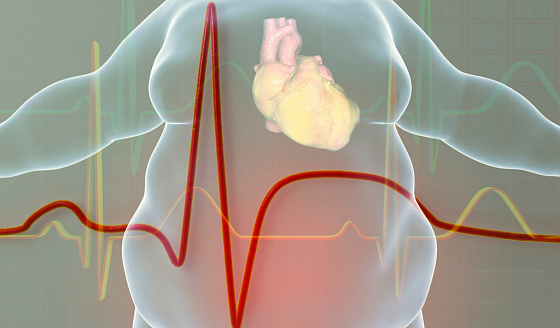
Metabolic syndrome (MS) has become so prevalent today that it is already being called the pandemic of the 21st century. Every fourth person in developed countries suffers from this syndrome, and in the next 25 years, the growth rate of its incidence is expected to increase by 50%.
Metabolic syndrome is not a disease, but a condition that combines a complex of metabolic, hormonal and clinical disorders. This creates risk factors for heart disease, diabetes and stroke. The basis of the metabolic syndrome is tissue resistance to insulin, or insulin resistance, and the main symptoms are excess fat in the waist (visceral obesity), high blood pressure (hypertension), impaired lipid metabolism, a tendency to inflammation and thrombosis.
The main causes of MS are chronic stress, certain personality characteristics, lack of exercise and malnutrition. MS sufferers are characterized by a constant feeling of fatigue and exhaustion, irritability, aggressiveness, bouts of anger, panic fear, which turn into a state of tearfulness, cognitive problems, behavioral disorders, sleep disturbances, addiction to alcohol, cannabis, nicotine.
Scientists have shown that people with an increased risk of MS have certain features of the reaction to stress, manifested in a decrease in the subjective significance of problem situations and avoidance of their resolution. This contributes to the accumulation of stress loads and disruption of the cardiovascular system, is fraught with states of reactive anxiety or reactive depression, which in turn leads to inadequately strong emotional reactions in relation to the stressful situations that cause them against the background of avoiding their external manifestation.
Against the background of depression, most often not clinically determined at first (subthreshold), an increase in body weight occurs, which is regarded as its somatic symptoms. Especially with anxious depressions, a feeling of insatiable hunger is manifested, craving for food rich in carbohydrates is activated. A violation of carbohydrate metabolism in depressed patients contributes to a decrease in the activity of natural immune killer cells, which, together with an excess of the stress hormone cortisol, suppresses the immune system.
With the development of depression, a person’s social activity decreases, which can reach a degree of neglect of one’s own health, there is a refusal to physical activity and eating disorders. As a result, the metabolic syndrome is aggravated and complications are formed.
A significant contribution to the development of the metabolic syndrome is made by treatment with antidepressants. Many of the drugs in this group cause such effects as slowing down the basal metabolism and accumulation of fluid in the tissues, which aggravates the course of MS.
All of the above allows us to include MS among the "diseases of civilization", i.e. diseases for which the role of the main risk factor is played by chronic stress, which exceeds the adaptive resources of the body.
That is why psychotherapy must necessarily be included in the treatment of metabolic syndrome. Especially effective is hypnotherapy, during which the psychotherapist helps the patient to remember the stressful events that provoked the development of the disease. Returning a person in a state of hypnosis to the past, the hypnotherapist turns off the mechanisms of pathological communication that causes metabolic disorders.
A good non-drug treatment is also transcranial electrical brain stimulation (TES). It is widely used to relieve pain of various origins due to its analgesic effect, and also has a positive effect on the processes of reparation and an increase in the psychophysiological status of a person, reduces anxiety and depression. A promising treatment for inflammation and psycho-emotional imbalance associated with allergies is infusion treatment with ketamine.
Guided by the principles of integrative, holistic medicine, combining psychotherapy with ketamine infusions, transcranial electrical stimulation, rehabilitation of the brain "Neurohelp", body-oriented therapy and art therapy, a significant improvement in the health of patients can be achieved.
